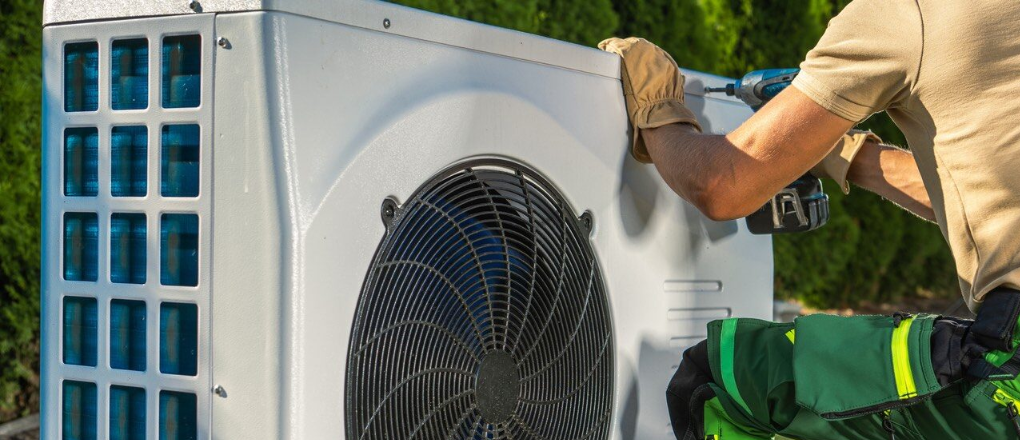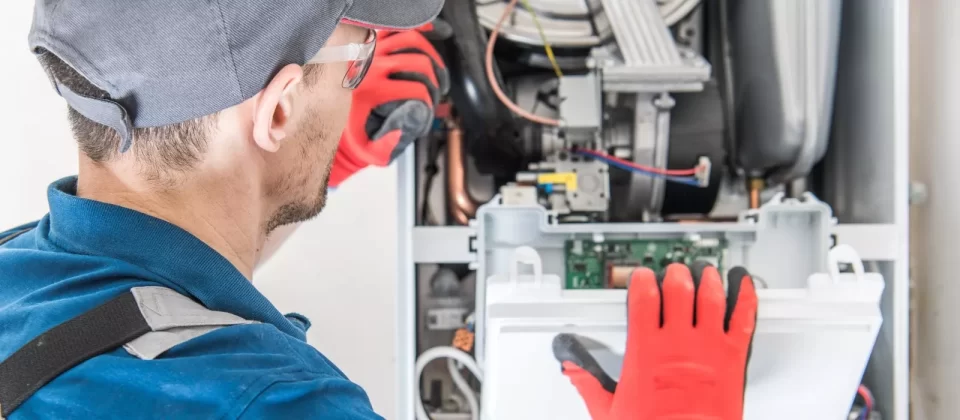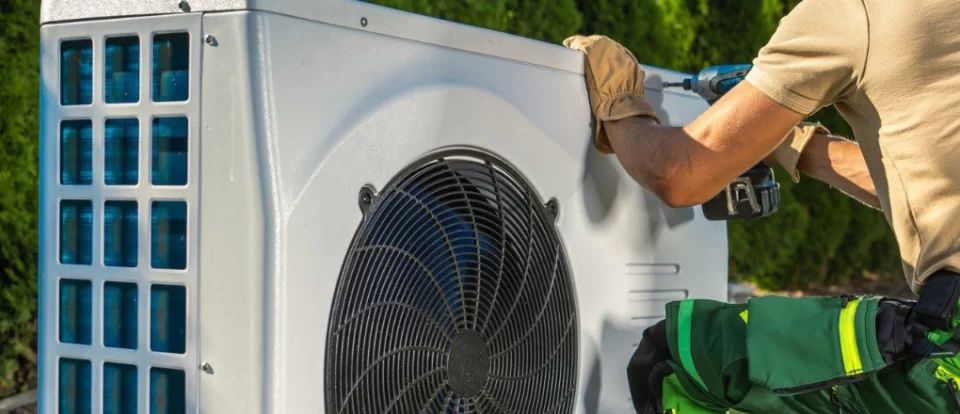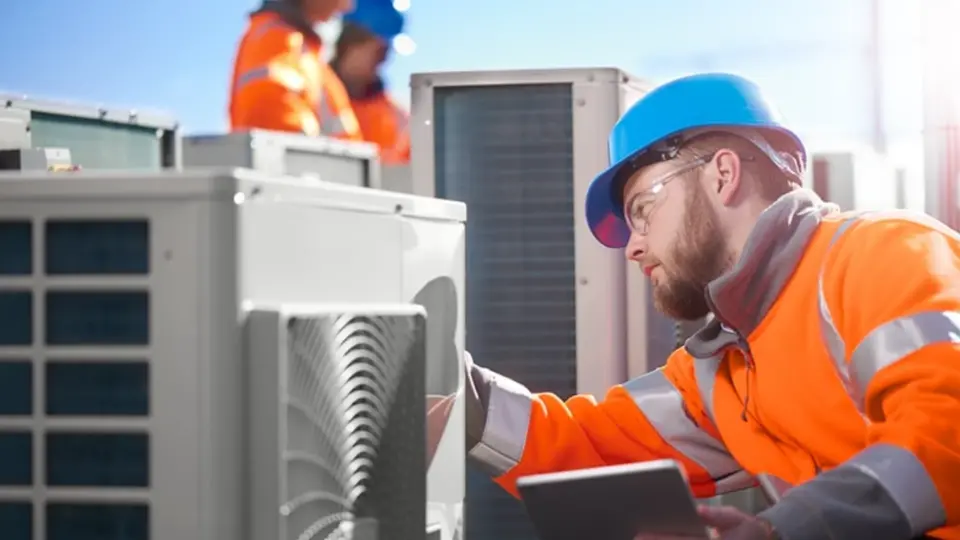One day your home feels perfect—the next, it’s stuffy, chilly, or just off. That subtle shift in comfort usually means your heat pump is trying to tell you something. Maybe it’s blowing lukewarm air. Maybe it’s cycling constantly. Either way, your house is giving you signs you shouldn’t ignore.
A broken heat pump doesn’t always start with a full shutdown. It starts with smaller signals including, uneven temperatures, weird noises, rising energy bills. These are your home’s early warnings, and catching them fast can save you from bigger (and more expensive) problems.
What Common Signals Show That a Heat Pump is Struggling to Keep Up?
Heat pumps are built to keep indoor temperatures consistent. But when something’s off, your home usually gives you clear signs. Here are the most common red flags:
Inconsistent Temperature
If some rooms are too hot or too cold, your heat pump may not be distributing air evenly. This could point to restricted airflow, dirty filters, or low refrigerant levels.
Blowing Warm Air in Cooling Mode
If your system is set to cool but blows warm air, something’s wrong. It could be a faulty thermostat, clogged coils, or low refrigerant.
Low Airflow
Weak airflow at the vents suggests the system is struggling to move air. Clogged filters, broken fans, or duct issues are likely culprits.
Frequent Cycling
Heat pumps should run in steady cycles. If yours keeps turning on and off, it may be overcompensating for a mechanical issue, possibly a refrigerant leak or a bad thermostat.
Ice or Frost Buildup
Ice on the unit in winter is a warning sign. It could mean a refrigerant issue or a malfunction in the defrost cycle.
Spotting these symptoms early helps prevent bigger, costlier problems down the line.
How Can a Failing Heat Pump Affect Overall Comfort in a Home?
A broken or failing heat pump impacts more than temperature. It can disrupt your comfort in several ways:
Temperature Imbalance
When the heat pump can’t push air evenly, you end up with hot and cold spots. You may constantly adjust the thermostat or turn to space heaters and fans just to stay comfortable.
Humidity Issues
A heat pump that isn’t working properly may struggle to manage humidity. The result? A home that feels damp, sticky, or musty, especially during summer. High humidity also encourages mold growth.
Poor Indoor Air Quality
If the system isn’t circulating and filtering air properly, you’ll likely notice more dust, allergens, and stale air. That’s a problem for anyone with asthma or allergies.
Energy Inefficiency
When a heat pump struggles to keep up, it runs longer and harder—driving up your energy bill. If your utility costs spike without a change in weather or usage, your system may be the issue.
In short, comfort, air quality, and efficiency all take a hit when a heat pump isn’t doing its job.
Why Do Certain Rooms Feel Different When a Heat Pump Malfunctions?
Uneven temperatures in different rooms often point to a deeper issue with your heat pump. Here’s why that happens:
Blocked or Dirty Vents
Furniture, curtains, or debris can block airflow. Dirty vents also reduce circulation, causing temperature swings in certain areas.
Ductwork Problems
Leaks, gaps, or blockages in ductwork can reduce airflow to certain rooms. Poorly insulated or sealed ducts let warm or cool air escape before it gets where it needs to go.
Thermostat Problems
If your thermostat is in a drafty or sun-exposed area, it might misread the actual temperature, causing uneven heating or cooling throughout the house.
Zoning System Malfunction
If your home uses a zoning system, one faulty damper or control issue can cause specific areas to be over- or under-conditioned.
When rooms feel noticeably different in temperature, don’t ignore it. It’s often a sign your heat pump isn’t distributing air the way it should.
What Does Unusual Noise from a Heat Pump Reveal About Hidden Issues?
Heat pumps make some noise, but when you start hearing strange or louder sounds, it could mean trouble. Here’s what to listen for and what it usually means:
Hissing or Gurgling
This often signals a refrigerant leak. Without the right refrigerant level, your system can’t cool or heat effectively. It can also cause ice buildup and long-term damage.
Banging or Clanking
These sounds usually mean something’s loose like a fan blade, motor mount, or internal part. If left unchecked, it can lead to more serious damage.
Rattling
Rattling often means something small like a screw or panel has come loose. But if ignored, it can escalate into bigger issues inside the unit.
Squealing or Screeching
High-pitched noises usually come from a bad fan motor or belt. This is a sign that moving parts are under stress and could fail soon.
Thumping or Bumping
Loud thumps may come from compressor issues or failing internal components. These are serious and could lead to a full breakdown.
Bottom line? If your heat pump sounds different than usual, have it checked out before the damage gets worse.
Get Your Heat Pump Back on Track with Elite Air & Heat
If your heat pump is showing signs of trouble like strange sounds, uneven temperatures, weak airflow, or higher energy bills, it’s time to take action.
At Elite Air & Heat, we specialize in diagnosing, repairing, and maintaining heat pumps of all types. Whether your system needs a quick fix or a full replacement, our licensed technicians can help restore comfort to your home quickly and affordably.
We don’t just fix problems; we help prevent them with expert maintenance and honest advice. Your comfort shouldn’t come with stress or surprises.





